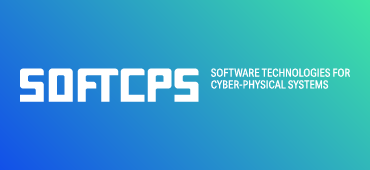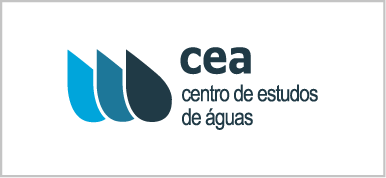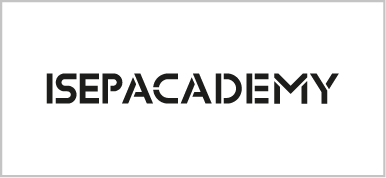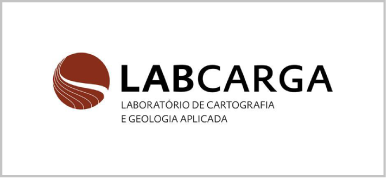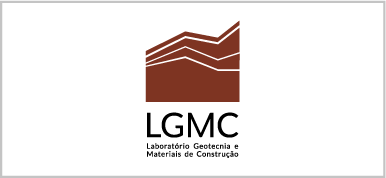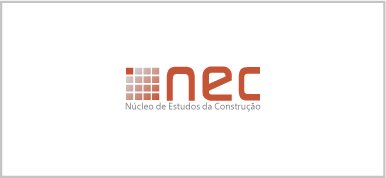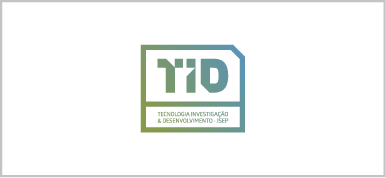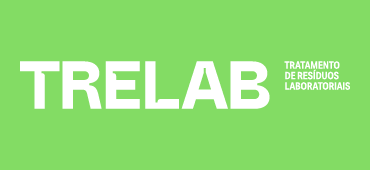
Abstracts
Daniela Velichová
Abstract
Paper will bring some information about SEFI Mathematics Working Group activities regarding mathematical education of engineering students. Current SEFI MWG core curriculum document for basics maths courses in engineering study programmes brings new ideas about focusing on development of various mathematical competencies in engineering students, which could help them to understand and use mathematics better in their specialisations and later on in their practical engagement as engineers. Some of the basic concepts will be discussed and ways how to assess acquired mathematical competencies will be presented.
----------------------------------------------------------------------------------------------------------------------------------
jaime carvalho e silva
Abstract
High failure rates in Mathematics result in poor progression rates on engineering courses in a lot of institutions around the world. This is a serious problem as student drop out rate is high and normally there are not enough technicians in a lot of areas and countries. Which are the proven old tools and promising new tools we can use? We will give a tentative 2018.
----------------------------------------------------------------------------------------------------------------------------------
jorge nuno silva
Abstract
From Play to Mathematics there are many possible paths, most of them visiting Games. We will share with the audience some thoughts related to this realm and use a particular example, which turns out to be an African traditional activity which can be approached very mathematically.
--------------------------------------------------------------------------------------------------------------------------------------
Morten Brekke
Abstract
In 2014 the bachelor programme for electronics engineering at the University of Agder was revised. The aim was
to strengthen students' performance through integrating Mathematics, physics and statistics within the study’s
technical subjects [1]. The intention is that this will contribute to a better learning process and increased
understanding of science and give students better opportunities to use these subjects in the more technical
courses in electronics. Another reason to change was to facilitate new teaching approaches, especially within
Mathematics. New students start at our University with a fairly high computer competence. They are used to work
and do exams with a computer. We as a University need to change our way of teaching courses from just doing
lectures and give them a final written exam on paper. We must let our students work with tools that are relevant to
the type of work they will do in the future. We need to prepare our electronic-students to be ready for work in
companies. They must be able to handle different and relevant tools on a computer. I believe a solid foundation in
Mathematics and good programming skills are essential for success.
We also wanted to fulfil the goals of the new “National framework for engineering” from The Norwegian
Association of Higher Education Institutions. This framework states that Mathematics course should have:
- Varied forms of teaching and assessment.
- Computational Mathematics.
- Connections between Mathematics and engineering.
- Modelling to solve Engineering problems.
- Use computer tools in Mathematics relevant for electronics
- Problem based learning using computers.
- Exams, tests and project work as part of evaluation,
We started off with a “flipped” classroom approach in 2015. We did not have any ordinary lectures; the scheduled
teaching hours were used as ‘seminars’. Students used pre-recorded short videos and a Computer Aided
assessment tool (MyMathLab) for training, tests and exams. The results after the first-year show that students
enjoy this way of teaching. Students can watch pre-recorded short lectures on video. The teacher talks with the
students and not only to them. There is time for discussion and it is believed there now is more opportunity for
understanding of Mathematics. The evaluation from students after the first year provide lots of positive feedback.
Students say that the Mathematics course is relevant and connects with courses in electronics. Results of student
performance shows grades far better than previous years. Although we consider the start as a success we have
done several minor adjustments. We have gone from all digital exams back to paper exams and have 2 hours of
‘ordinary lectures’ every week. The reason for this are passed on our experience of how students work, by paper
exam we sort of ‘force’ students to calculate on paper. This mix with both computer based tests and paper exams
seems to be well received by students.
REFERENCES
[1] Brekke, M. (2016). Embedding mathematics content within the electronics courses for engineering students.
The 18th SEFI Mathematics working group seminar, 27-29 June, 2016 Gothenburg, Sweden.
----------------------------------------------------------------------------------------------------------------------------------
Amélia caldeira
Abstract
Interdisciplinarity is a very important strategy to give students the opportunity to learn using knowledge drawn from multiple subjects. This strategy requires knowledge interaction and integration from different courses and a comprehensive problem that shapes learning.
In this talk, we present a teaching experiment performed in the first degree of the Electrical Engineering – Power Systems degree of the Institute of Engineering of Porto (ISEP).
We describe an interdisciplinary teaching experience involving three subjects of the scientific area of Mathematics and a fourth one in the area of Management.
Using only one project, the students developed competencies, in an integrated way, in the fields of the subjects involved. The project applies knowledge previously obtained in several courses of the same semester.
This experience allowed students to develop unique skills and experience where they could relate different subjects.
This is a joint work with: Stella Abreu, Alexandra R. Costa, Tiago Gomes and Luis A. C. Roque
--------------------------------------------------------------------------------------------------------------------------------------
Ana júlia viamonte
Abstract
The gamification of education is a topic increasingly discussed in the educational field, but still little implemented, especially in higher education. Students who become players, challenging classes, working autonomously and / or in groups and working online to earn points, receive medals and other prizes, achieve the highest scores and enter the leaderboard, receive real-time feedback on the performance ... These are some of the transformations that occur when one enters into the 'gamification' of teaching.
The goal is always the same: to engage and motivate students for learning.
The aim of this study is to use gamification as a motivation factor and to combat high school drop-out rates in the first years of higher education in curricular units of mathematics. Thus we present here an experiment where the Moodle platform is used to implement a Gamification strategy in a mathematics discipline of an engineering course.
--------------------------------------------------------------------------------------------------------------------------------------
cristina torres, lurdes babo
Abstract
Nowadays, we all realized that technology offer large possibilities of teaching and learning, and although there are many studies about its importance in the educational system, we believe that there is still a gap between such thinking and the reality in Higher Education Institutions (HEI). For this reason we think that there is a need to update the methods of training in Mathematics and present the Mathematics contents in a more attractive way using Information and Communication Technology (ICT). The presence of digital technology requires the emergence of new practices, techniques, environments and strategies, teaching and learning. Based on MatActiva on-line project, we would like to share our experience and thoughts with colleagues who have a common concern when they have the task of constructing Multiple-Choice Questions. These questions are generally more complex and time-consuming to create than other types of questions and require a certain amount of skills.
We also would like to present some types of feedback used in Mathematics formative tests developed in MatActiva project. Based on a reflexive approach supported by our professional experience performed in the Moodle platform we will show some results of how feedback can be used to optimize mathematical understanding and help students to improve learning and levels of success in Mathematics Courses.
--------------------------------------------------------------------------------------------------------------------------------------
KEN BROWN
Abstract
This paper considers some of the themes emerging from recent research in Learning Technologies and the importance of belonging to a culture, profession or societal grouping.
The discourse of Technology Enhanced Learning seeks to explore the multifaceted possibilities and impediments as they affect the design of learning programmes. Emerging from this research is the growing sense of “de-humanisation” of the student within the processes of design, application, and operationalisation of Technology Enhanced Learning pedagogies. The process of de-humanisation is becoming an accepted norm in higher education due to the emphasis on technology and analytical outputs. The emerging theme of de-humanisation provides a lens on the sources of tension and richness arising from the widely divergent values that can be embedded in Technology Enhanced Learning. This is not to negate consideration of infrastructural issues and the Technologies-Learning-Culture nexus; it is to highlight an issue before it becomes too deeply embedded in the psyche. The distinctive offerings of programmes designed within particular culturally diverse paradigms offers potential opportunities to reimagine the paradigm. The width of Technology Enhanced Learning is such that a global perspective cannot be translated into a single paradigm, hence engineering mathematics forms a bounded domain for exploration. Formal and informal learning spaces, domains and cultural affordances may be considered within an alternative vision to suit the diversity of the anticipated student base and enhance the ‘belonging’ whilst maintaining programme validity and integrity.
Key words: Technology Enhanced Learning, Belonging, Engineering mathematics
--------------------------------------------------------------------------------------------------------------------------------------
MARIA MANUEL NASCIMENTO, EVA MORAIS
Abstract
In recent years, statistics has been recognized as a basic component of citizenship education and its incorporation into school curricula in various countries confirm the importance of its learning. Currently, several resources are available online or as applications for the mobile devices, but their use within classes may vary depending on the use teacher devises for them. Also, the higher education students explicitly need other way of facing their future workplaces so a different view of using statistics should be encouraged including activities in the classes that promote the development of students’ critical thinking skills. The teaching of Probability and Statistics’ courses in the second year of different engineering degrees will be presented emphasizing the importance of infusing a first a critical thinking approach.




















